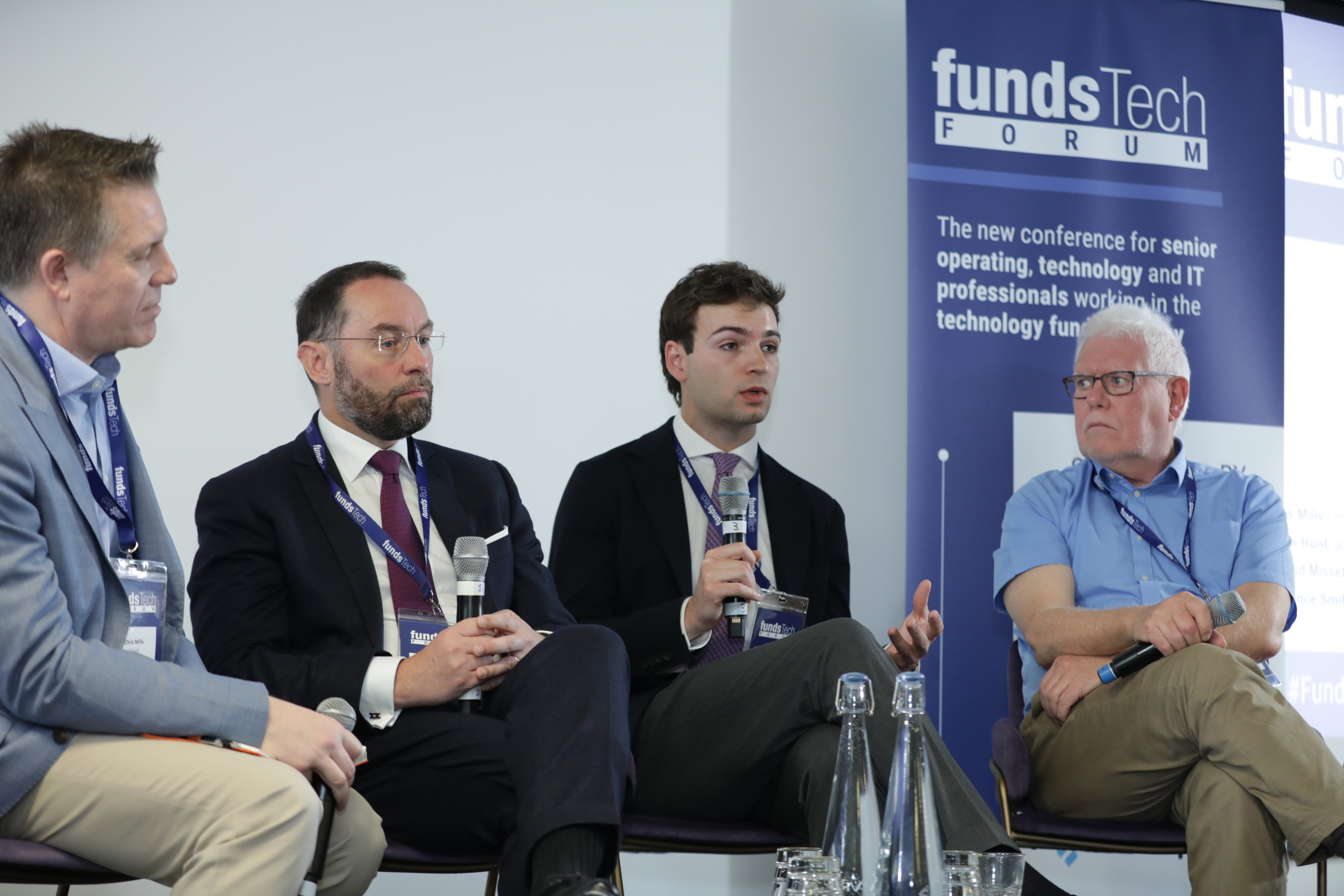 The first-ever online fund supermarket in South Korea has been criticised for âlacking byteâ, but Stefanie Eschenbacher finds foreign asset managers in particular are excited about the potential of this new distribution channel.
The first-ever online fund supermarket in South Korea has been criticised for âlacking byteâ, but Stefanie Eschenbacher finds foreign asset managers in particular are excited about the potential of this new distribution channel.
Fund Online Korea could help foreign asset managers capture market share in South Korea, where distribution is so inefficient and heavily skewed towards the large local banks and securities companies that the regulator had to step in.
The online fund supermarket Fund Online Korea is a joint effort between the Korean government and the Korea Financial Investment Association, offering more than 1,000 funds from 52 asset managers.
Data from Cerulli Associates shows that banks still distribute 46.9% and securities companies 44.5% of locally domiciled mutual fund assets in South Korea.
All the top ten asset managers in the country have an affiliated bank and/or brokerage company in the market.
Rachel Poh, analyst at Cerulli Associates, and one of the authors of a recent industry review, entitled Lacking byte, highlights the importance of relationships between asset managers and their distributors in South Korea.
KB Asset Management relies on Kookmin Bank to distribute its products while Shinhan BNP Paribas Asset Management, a joint venture, distributes mainly through its parent, Shinhan Bank.
The country’s asset management industry is dominated by a handful of local heavyweights – Mirae Global Investments, Samsung Asset Management, KB Asset Management, Shinhan BNP Paribas Asset Management and Korea Investment Management.
Yong Bae Jeon, chief executive officer at Franklin Templeton Korea, concedes that the retail market in South Korea is especially challenging for foreign asset managers.
“Foreign asset managers are struggling to expand their businesses in Korea, especially in the retail market,” Jeon says.
“The retail market is supported by the large institutions, such as retail banks and brokerage companies, but most foreign asset managers are independent and do not have a strong sponsor.”
Franklin Templeton Investments entered South Korea in 1997, initially targeting the retail market, but Jeon says this part of the market is characterised by “boom and bust” cycles.
In the years after the financial crisis, the business was refocused to concentrate on the country’s institutional market.
This has been a common trend among other asset managers in South Korea.
Jeon says national pension and insurance companies now make a more compelling business opportunity for foreign asset managers than the retail market.
New distribution channels like Fund Online Korea could help foreign asset managers to capture, or recapture, some of the retail market.
They have traditionally struggled to get their products distributed by large banks and securities companies, regardless of the quality and the fact that they could diversify the overall offering to retail investors.
The market in South Korea is so heavily skewed towards the largest banks and securities companies that local regulators stepped in last yar to limit distributors’ sales of their affiliates’ fund products to 50% of total funds. Poh says this has not yet had an impact because it only applies to sales of new funds, and fund sales in general have been slow to pick up since the crisis.
CHALLENGE
Arnaud Carcel, deputy chief executive officer at Kyobo Axa Investment Managers, says Fund Online Korea could also help retail investors to forge their opinions and reduce the high distribution fees borne by them.
Funds sold via Fund Online Korea will not be allowed to charge any upfront fees, and Cerulli forcasts the total cost of investing to amount to about a third of that for funds offered in other distribution channels.
“It is a good initiative, but it will take time to develop this distribution model,” Carcel says, adding that the dominance of banks and securities companies will be hard to challenge.
 Axa Investment Managers has no captive distribution network in South Korea and is not affiliated with a bank, but Carcel says its partnership with Kyobo Life Insurance has allowed the business to grow even during difficult market conditions.
Axa Investment Managers has no captive distribution network in South Korea and is not affiliated with a bank, but Carcel says its partnership with Kyobo Life Insurance has allowed the business to grow even during difficult market conditions.
“It is quite challenging for asset managers to establish economies of scale in this market, where prices are always compressed,” he says.
“We offer mainly Korean products and we try to progressively introduce the Axa Investment Managers range, but the developing path of these products is quite slow.”
There are plans to gradually introduce emerging market equity and thematic products, adding to an existing offering of inflation-themed bond and US equity funds.
Patrick Mange, head of emerging markets strategy at BNP Paribas Investment Partners, says its partnership with Shinhan Bank, the country’s second-largest bank, has been “crucial” to success.
While asset managers with such partnerships would appear to lose the most from new distribution channels such as Fund Online Korea, Mange says online fund supermarkets will help them to further diversify their distribution channels.
Even Mirae Asset Global Investments, the largest locally domiciled asset manager by assets under management, plans to take advantage of the online fund supermarket.
Won Jin Park, executive director of its retail marketing unit, says he has been making a consistent effort to lead the online and mobile business in the mutual fund market. “Fund Online Korea also will surely play an important role in the future,” he says.
Many foreign asset managers have been almost exclusively focusing on institutional but Park says institutional investors account for only 57% of its assets under management. “Both individual and institutional investors are important for us,” Park adds.
It has relationships with over 60 retail distribution channels, including banks, securities and insurance companies.
Eastspring Asset Management Korea has been mainly working with major banks, securities companies and insurance companies, with a focus on those that target high-net-worth individuals.
GOVERNMENT-BACKED
It has plans to launch more products next year, having already registered a global emerging markets fund in South Korea.
In addition, the asset manager is developing a balanced fund, an Asian dividend fund and a fund that can invest under the renminbi qualified foreign institutional investor scheme that allows asset managers to raise offshore renminbi and invest them into Chinese A-shares.
Exclusively for its institutional investors, Eastspring Asset Management Korea is working on a real estate loan fund and fixed income funds investing in Europe or the US.
Woong Park, its chief executive officer, reiterates the importance of building strong relationships with local distributors, and says he welcomes Korea Fund Online.
“Demand [for mutual funds] will grow, but it depends on the overall infrastructure utilising the online vehicle,” Park says, adding that interest in online fund platforms will grow once a system of independent financial advisers is introduced.
Jeon shares this line, adding that the government is also backing Fund Online Korea.
Young Soo Kim, head of distribution at Schroders Korea, says he has been focusing on strengthening relationships with high-level commercial banks and securities companies.
“Different channels each have strengths so we work hard to effectively strategise our efforts among the channels,” Kim says.
When the fund industry in Korea was in boom, a large proportion of its inflows came from commercial banks, but Kim says that in the current difficult investment environment, securities companies tend to be relatively pro-active in promoting investments even amid higher uncertainty.
“We recognise the importance of managing both sales routes and are continuing efforts to do so,” Kim says, highlighting that in the long term, this online distribution channel will become essential to investors and asset managers alike. Kim says retirement-focused and insurance-linked funds have a high growth potential. “Accordingly, insurance companies are increasingly becoming an important focal distribution strategy, and we are putting efforts in to expand and to strengthen our fund distribution with insurance companies,” he says.
One of the newest asset managers in South Korea, Threadneedle Investments, set up a representative office in Seoul in August, but focuses exclusively on institutional investors.
Poh says many foreign asset managers in South Korea have scaled back their retail business.
“It is a common practice to have budget cuts because profits are still low for retail funds for both foreigners and locals,” Poh says. “There seems to be a lack of trust in mutual funds because they have not been performing well.”
She adds that several foreign asset managers have attracted inflows into their foreign funds, but adds that it takes “a lot of time, a lot of effort, persuasion and patience” to convince South Koreans to change their habits.
South Korean investors have traditionally had a large home bias, and they have only recently started to consider foreign funds, even though some of those have generated consistent returns over the past one or two years.
Poh says it is unlikely that any asset manager will expand into South Korea for its retail business, adding that “everyone is aware of how difficult it is”.

The most high-profile exit in recent years has been Goldman Sachs, which left South Korea at the end of 2012 after five straight years of posting losses.
“It is difficult for any wholly owned foreign player to do well in Korea because of the lack of distribution channels and because the appetite for foreign fund takes a long time to build up,” Poh says.“A lot of Koreans are also more aware of their own brands and logos.”
Poh says although wholly owned foreign asset managers, such as Franklin Templeton Korea, Schroders Korea and Fidelity Worldwide Investments have seen inflows into some of their funds, they remain comparatively small.
“MINOR SUCCESS”
Only a few foreign asset managers, such as Shinhan BNP Paribas Asset Management, Kyobo Axa Investment Managers and UBS Hana Asset Management, have made it into the top – and only with the help of a local joint venture partner.
Korean regulators also recently cancelled a tax advantage that was given to investors, making overseas funds once again more expensive for local investors.
Carcel says taxation plays a role for private investors, but for institutional investors the impact should be low.
Foreign funds are subject to a capital gains tax, which is applied according to a tier system.
In 2008, several foreign asset managers moved into South Korea and experienced what Poh describes as “minor success” when the government temporarily waived those fees.
When the tax was reinstated in 2009, it became harder for asset managers to sell their foreign funds.
“Most have increased their focus on servicing institutional clients,” says Poh. Institutional investors are also not as sensitive to taxation as retail investors.
Poh is also less optimistic about the prospects of Fund Online Korea, which she says is not a new concept and that such efforts have failed to gain traction in the past.
“People who buy mutual funds still prefer to go to banks and speak to advisers about what to buy,” she says.
Park says taxation is indeed a challenge. “There is a hindrance in increasing the overseas product demand, but wealthy individuals are more concerned about principal protection … and diversification into other asset classes and markets,” he adds.
“We are seeing increasing demand for overseas products, but because of poor returns from emerging market products over the last several years, the overall progress has been quite slow.”
Mange, too, expresses frustration over issues like taxation and regulation in general, adding that it should be more stable and predictable.
“Korea is a challenging market,” Mange says. “It has a lot of savings so it is an interesting market in terms of opportunities, but it is not easy and regulation is not making life any easier for foreign players.”
Shinhan BNP Paribas Asset Management was one of the first to take advantage of regulatory changes that allowed hedge funds to operate in the market two years ago – a broader Asia hedge fund and a pure Korean equity long/short hedge fund.
Even though mid-risk/mid-return products or income-themed bond funds have been most sought-after in South Korea, Mange says “the market is starting to wake up” to new products.
“Foreign asset managers can come in with a broader range of products that do not exist in the domestic market and the regulator will probably do everything to keep the foreign asset managers in Korea,” he says, pointing out that there is a need for further product diversification.
He says: “The regulation would rather change positively to keep the foreign asset managers in Korea.”
©2014 funds global asia

 At times like these, HSBC Asset Management easily pivots towards emerging markets.
At times like these, HSBC Asset Management easily pivots towards emerging markets. A comprehensive, cost-effective, and transparent currency overlay hedging solution is crucial to mitigate FX exposure risks in the complex landscapes of Japan and China's FX markets, explains Hans Jacob Feder, PhD, global head of FX services at MUFG Investor Services.
A comprehensive, cost-effective, and transparent currency overlay hedging solution is crucial to mitigate FX exposure risks in the complex landscapes of Japan and China's FX markets, explains Hans Jacob Feder, PhD, global head of FX services at MUFG Investor Services. Contradictory market sentiments from commentators have impeded the decision-making powers of the first wave of AI-powered ETFs, says Alvin Chia of Northern Trust Asset Servicing.
Contradictory market sentiments from commentators have impeded the decision-making powers of the first wave of AI-powered ETFs, says Alvin Chia of Northern Trust Asset Servicing. The world is transitioning from an era of commodity abundance to one of undersupply. Ben Ross and Tyler Rosenlicht of Cohen & Steers believe this shift may result in significant returns for commodities and resource producers over the next decade.
The world is transitioning from an era of commodity abundance to one of undersupply. Ben Ross and Tyler Rosenlicht of Cohen & Steers believe this shift may result in significant returns for commodities and resource producers over the next decade. Ross Dilkes, fixed income portfolio manager at Wellington Management, examines the opportunities and risks for bond investors presented by the region’s decarbonisation agenda.
Ross Dilkes, fixed income portfolio manager at Wellington Management, examines the opportunities and risks for bond investors presented by the region’s decarbonisation agenda. Shareholders in Japan no longer accept below-par corporate governance standards. Changes are taking place, but there are still areas for improvement, says Tetsuro Takase at SuMi Trust.
Shareholders in Japan no longer accept below-par corporate governance standards. Changes are taking place, but there are still areas for improvement, says Tetsuro Takase at SuMi Trust.


